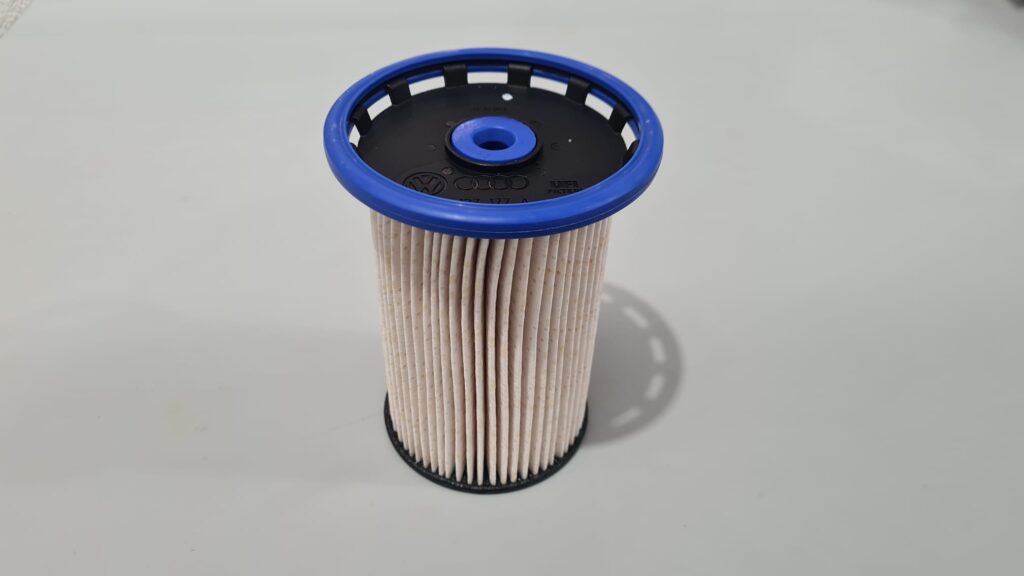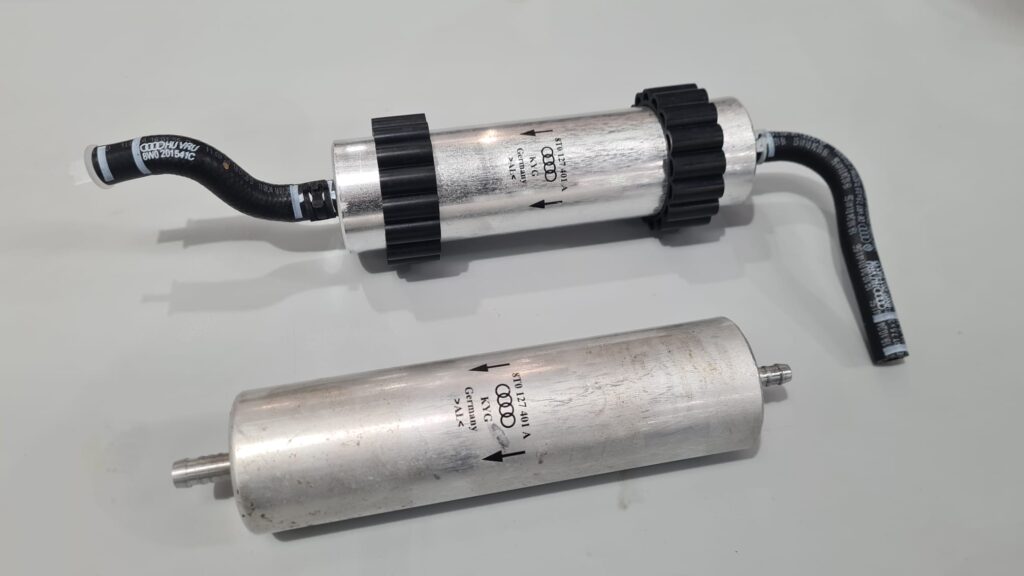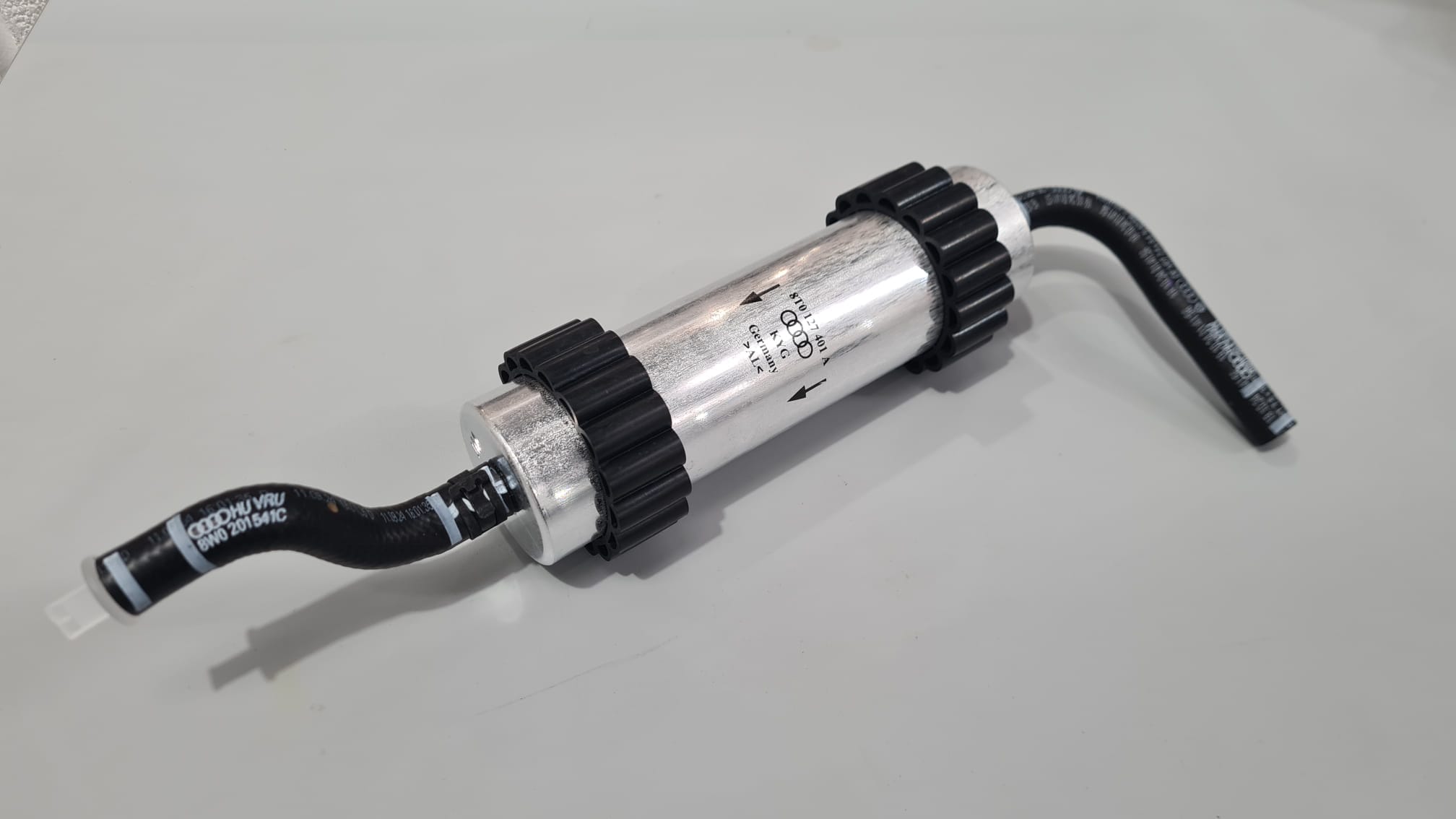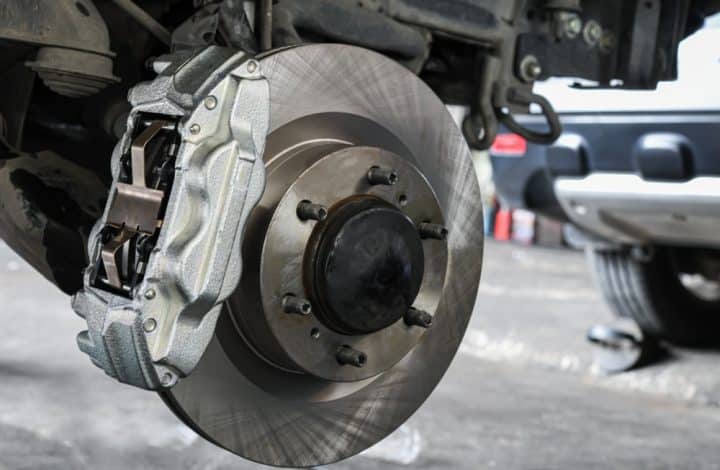Diesel Fuel Filter Explained: Why It Matters
Can a diesel fuel filter really mean the difference between reliable driving and expensive repairs?
This vital filter helps keep particles and water away from critical parts of your diesel fuel system, preventing them from harming areas such as the injectors or high-pressure pump. If replacement is missed, the risk of performance issues and costly failures increases significantly.
Here, we’ll explain where the diesel fuel filter is fitted, what it does, the problems caused when it’s not replaced, and why regular servicing matters.
When was your diesel fuel filter last replaced?
Book your service with Roade Main Garage, Northampton today on 01604 862262 and keep your car protected.
Diesel fuel filter location explained
Your diesel fuel filter (part 4 in the diagram) is usually fitted on the low-pressure side of the system, between the fuel tank and the high-pressure pump.
On most modern vehicles, you’ll find it mounted in the engine bay, which allows easier access during servicing.

Many diesel fuel system designs also include a coarse strainer inside the tank (part 2), which captures larger debris before it can travel further into the system.
Take a look at our full Diesel Fuel System Guide for a clearer picture of how every part of the fuel system works together.
Why the diesel fuel filter is essential
Your diesel fuel filter has one job… To protect your diesel fuel system from harmful contamination. It does this in two important ways:
- Catching debris: Your vehicle’s diesel fuel filter traps small particles and impurities found in the diesel before they can enter the fuel injectors or high-pressure pump. If it’s not regularly replaced during servicing, these contaminants can cause wear, blockages, and expensive repairs.
- Separating water: Diesel naturally carries traces of water. Your car’s diesel fuel filter removes this moisture before it circulates through the rest of your fuel system, protecting it from corrosion and serious faults.
Your diesel fuel filter is a key defence against contamination and higher repair costs. Regular servicing is crucial for keeping your fuel system in top condition. Book your servicing today at Roade Main Garage, Northampton.
Construction and types of diesel fuel filters
The majority of modern diesel vehicles use a fine filter module (as seen in part 4 of the diagram), though how it’s constructed may vary. The two main designs are:
- Cartridge modules: The standard design in most modern diesel vehicles. A fixed housing, made from plastic or aluminium, holds a pleated, multi-layer filter element that traps particles and removes water. The housing itself may also feature sensors, valves, or a hand primer. During servicing, only the internal element is replaced.

- Sealed filter units: In this design, the diesel fuel filter is a sealed canister containing both the housing and the filter media. The entire unit is replaced in one piece. This approach is often found in older or heavy-duty diesel systems, and some versions include integrated water separation or drain bowls.

Most setups also have a coarse strainer inside the tank (part 2 in the diagram), which catches larger debris before it reaches the main filter.
Timely diesel fuel filter replacement during your vehicle’s servicing ensures the diesel system remains protected.
If you think your diesel fuel filter needs replacing or you’re unsure, don’t wait. Call Roade Main Garage, Northampton, today for expert servicing.
Diesel fuel filter faults and their impact
When diesel fuel filters fail, the following issues can arise:
- Filter restriction: A blocked diesel fuel filter reduces flow to the high-pressure pump, leading to poor performance, long cranking, or total no-start conditions.
- Blocked strainer: A clogged tank strainer makes the lift pump work harder, often resulting in more noise and irregular diesel supply.
- Water ingress: If water isn’t removed from the diesel, it can travel through the fuel system, corroding injectors and damaging the high-pressure fuel pump.
- Incorrect fitment: A wrongly chosen filter or poorly sealed unit may cause leaks, air ingress, or fuel bypassing the diesel fuel filter.
- Air in the system: Damaged seals or poor installation can allow air into the low-pressure side of the fuel system, causing hesitation, stalling, or extended starting.
When did you last have your diesel fuel filter checked? Speaking to a professional can give you peace of mind.
Diesel fuel filter replacement intervals
Unfortunately, diesel fuel filters don’t have a universal replacement mileage. The interval depends entirely on the manufacturer’s recommended servicing schedule, which will vary based on your car’s make, model and year.
Here are a few key points to keep in mind:
- Correct filter design: Always install the right diesel fuel filter for your car. Cheaper alternatives may cause fuel leaks, restriction, or poor water separation.
- Priming step: Once fitted, the diesel fuel system must be primed correctly using the pumps or a hand primer. If this process is skipped, air pockets may remain, causing poor starting or fuel pump damage.
- Water checks: Some filters are equipped with drains or sensors. These should be inspected and drained as part of regular servicing.
- Performance decline: ISO testing shows new diesel fuel filters separate more than 95% of water, but this figure can fall to about 70% by the end of their service life.
Staying on top of diesel fuel filter changes is an essential part of preventative maintenance. Following the manufacturer’s service schedule lowers the risk of fuel system issues and keeps your diesel running at peak performance.
Protecting your diesel system
Keeping your diesel fuel filter replaced on time is an important part of preventative maintenance.
By following the manufacturer’s servicing schedule, you reduce the risk of fuel system problems and help your engine continue running smoothly. Looking after your diesel fuel filter now helps you avoid far more serious and costly issues further down the line.
When it comes to protecting your diesel, choosing the right garage is just as important as replacing the filter itself. That’s why drivers across Northampton, Milton Keynes, and the surrounding areas rely on Roade Main Garage for expert servicing.
Why drivers choose Roade Main Garage
Motorists across Northampton and Milton Keynes choose us because we deliver:
- Courtesy car options are available while we service your vehicle.
- Technicians trained in diesel system servicing.
- A 12-month parts and labour guarantee.
Our {{average-rating}}⭐ Google rating from {{review-count}} customers highlights the trust local drivers place in us.
When was your diesel filter last replaced? Call Roade Main Garage on 01604 862262 today to book.
Frequently asked diesel fuel filter questions
Where can I find the diesel fuel filter?
Your diesel fuel filter is usually mounted in the low-pressure line between the fuel tank and the high-pressure pump. On most modern cars, it’s positioned in the engine bay for easier access. In addition, most systems also include a coarse strainer in the tank, which traps larger debris before it reaches the filter.
What does a diesel fuel filter do?
It removes harmful particles and water from the diesel before they can reach the high-pressure pump or injectors. Without this protection, contaminants can cause wear, corrosion, or blockages that may result in severe and costly repairs.
When should my diesel fuel filter be replaced?
Replacement intervals are not the same for every car. You should always follow your manufacturer’s servicing schedule for reliable guidance.
How can I tell if my diesel fuel filter is blocked?
Common signs of diesel fuel filter blockage include:
- Hesitation
- Reduced power
- Hard starting
- Stalling
- Complete no-start conditions.
Because these issues may be caused by other faults, it’s always best to have a technician confirm the cause.
Can a blocked diesel fuel filter damage the high-pressure fuel pump?
Yes. A restricted diesel fuel filter starves the pump of diesel, forcing it to overwork. This added strain may lead to premature wear or pump failure, both of which are costly repairs.



